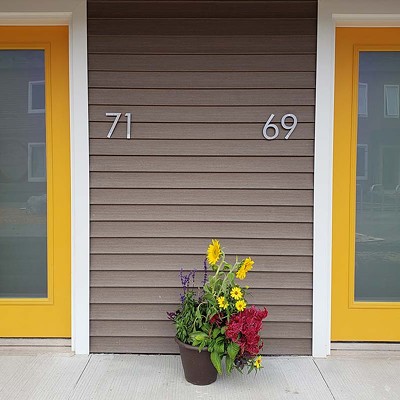Like many students who rent in south end Halifax, Robert Jewer feels he’s being gouged. He’s paying $620 per month for his room in a modest three-bedroom apartment, located at Park Victoria on South Park.
“It seems high,” he says, “but it’s something you learn to live with in this city.”
Jewer moved here from St. John’s to start an MBA program at Dalhousie. But finding a decent apartment was expensive and forced him to make a few sacrifices. Jewer’s car remains parked in his parents’ driveway—he can’t afford to pay for insurance.
But Jewer has high hopes for a recent Progressive Conservative promise.
In the spring budget, Rodney MacDonald’s government announced plans to remove the provincial portion of the HST from home heating and electricity bills. Although Jewer doesn’t pay directly for heat—it’s included in his rent—he believes the eight percent tax break should make living in Halifax more affordable.
That’s assuming landlords will start lowering their rents because of cheaper heating and electric bills.
Not likely, says Patrick Johnston, president of UC Investments. Most landlords have been keeping prices steady over the past three years, despite rising energy costs.
“Rent in south end Halifax is so high already,” Johnston says, whose rental companies include University Living and Atlantic Living. “The market wouldn’t sustain any other increases. So in the past few years, any additional heating costs were generally eaten by the landlord.”
For many tenants, there’s no guarantee they’ll see a savings from the HST break, and there’s still a possibility that rents could go up in the fall.
The government can’t do anything to make landlords share the wealth. But finance minister Michael Baker said in his budget speech that landlords will be forced to pass the savings on to tenants in order to remain competitive in the market place.
Capp Larsen of the Halifax Coalition Against Poverty laughs at the suggestion the free market will keep rising rents at bay.
Larsen sits scribbling in her notebook in her tiny one bedroom apartment above a gallery on Gottingen street. This is where she runs HCAP’s tenant advocacy line, fighting for fair living conditions on behalf of low-income residents.
The tax break on heating is inherently flawed, she says.
“The landlord is going to pocket the extra eight percent,” Larsen says. “The chance that it is going to funnel down to the tenants is very, very small.”
It’s a landlord’s market right now, she says. “There’s such a dreadful lack of affordable housing out there, many are forced to pay very high rents for very low quality apartments.”
Finance officials weren’t anticipating such a disdain for their flagship budget promise.
“There’s always going to be variables where you can argue one person is better off than the other,” says Cathy Shaw, spokesperson for the department of finance. “The real pro about is that it is so widespread. There’s no restriction as to who it applies to.”
While that may be true, it’s cold comfort to Larsen. A tax break on heating and electricity bills is unlikely to have much effect on low-income Nova Scotians, she says.
That’s why Larsen is pushing for government-regulated rent control. “That would be the most significant way of securing their tenancy and making sure that their rents aren’t increased because of excuses like rising oil and gas prices,” she says.
Currently, there is no rent control in Nova Scotia, which means landlords can raise rent as much as they want once a year.
A rent control system would cap the amount landlords can raise their rents each year. The percentage increase would be linked to economic indicators such as the consumer price index, inflation rate and cost of living, Larsen says. Nova Scotia used to have rent control, but the government removed it from the books in 1993.
As he hunts for an affordable apartment this summer, Jewer hopes the province will re-examine the issue of rent control following the election. That, he says, might be the only way he’s guaranteed to see some good come from the tax break on heating bills.










